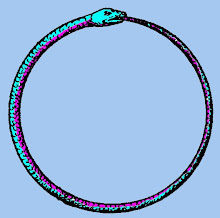
To note a highly synchronized week of U.S. and world events, most especially for those working within the military, we will reproduce two chapters from this authors favorite books on numbers. Today marks 11/11/09 yesterday was of course: 11/10/09 and this Friday is 11/13/09. What do these numbers mean and could there be a direct influence within the framework of consciousness and the progression of some kind of programming that is occurring in space, the ether(net), or the information field that we are all tapping into?

NUMBERS
Divine order, the cryptic keys to cosmic harmony. The greatest mathematical philosophers of ancient Babylonia and Greece, and later, India, believed that numbers could reveal the principles of creation and the laws of space and time. In the interplay of odd and even numbers the Greek philosopher Pythagoras (c.580 BCE - c.500 BCE) saw the workings of a dualistic universe of opposites - limit and unlimited, straight and curved, square and oblong. "All things are numbers," he said. In Hinduism numbers where the basis of the material universe. The Aztecs assigned to each fundamental number a god, a quality, a direction and colour. Because numbers were used by gods to regulate the world, they were thought to have particular symbolic significance. Numbers were seen as fundamental in music, poetry, architecture and art.
Jewish Cabbalists allocated number values to letters of the Hebrew alphabet and used the system to reinterpret the Hebrew Bible, a forerunner to numerology. Number superstition is often based on the traditional symbolism in numbers (sacred seven, unlucky 13). The sequence one, two, three almost universally represented unity, duality, and synthesis. in Pythagorean terms, 1,2,3,4 symbolized the flow from point to line to surface to solid. In Greece, odd numbers were masculine and active, even numbers feminine and passive. in China, odd numbers were yang, celestial, immutable and auspicious; even were yin, terrestrial, mutable and sometimes less auspicious. numbers with archetypal significance ran from one to ten (or one to 12 in duodecimal system's). Higher numbers in which important archetypes reappear (17 in Islamic tradition: 40 in the Semitic world) often reinforce number symbolism.
-The Complete Dictionary of Symbols
By Jack Tresidder, General Editor

THE MUTE NUMBER
11
Eleven is the sin. Eleven transgresses the 10 Commandments
In placing this verdict in the wise astrologer Seni's mouth in his drama The Piccolomini, Shiller voices a traditional opinion, for 11 has usually been connected with something negative. Larger than ten and smaller than twelve, it stands between two very round numbers and therefore, while every other number has at least one positive aspect, 11 was always interpreted as in medival exegesis ad malam partem, in a purely negative sense. The 16th century numerologist Petrus Bungus went so far as to claim that 11 "has no connection with divine things", no ladder reaching up to above things, nor any merit." He considered it to be a number of sinners and penance. Medival theological works often mention "the 11 heads of error." The Muslim Bretheren of Purity also gave a negative connotation to 11, regarding it as the first "mute" number in the chain of "mute" prime numbers beyond 10.
Originally it seemes to have been connected to the zodiac, for 1 of the 12 signs is always behingd the sun, hence invisible. This is alluded to in Passover Haggadah, and in Joseph's dream (Gen. 37:9) where sun, moon, and 11 stars make obeisance to him, "stars" should proablably interpreted as "signs of the zodiac." The basis for such interpretation seems to be the ancient Babylonian creation myth as told in Enuma elish, which describes the struggle of Tiamat, the chaos agaist the ordering gods, a sturggle in which Tiamat is supported by 11 monstrus beings. These 12 adversaries are overcome by Marduk, the god of light; however, he does not kill them but rather, places them in the firament and since he is the sun god, always stands before one of them.
-The Mystery of Numbers
Annemarie Schimmel


